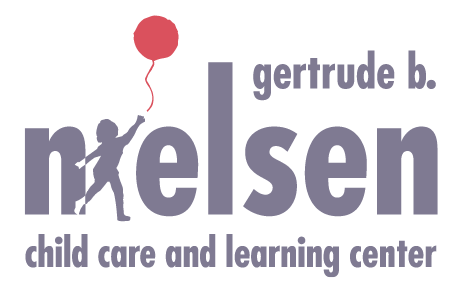Assistant Teacher
Purpose
To establish a partnership with the lead teacher and the families to support their children’s development.
Key Responsibilities
The following are core guidelines to be used as a frame of reference. It is expected that all assistant teachers are performing the core guidelines by their 90 day review.
- Develop warm relationships with the children.
- Develop friendly, warm communications with the parents through positive greetings and conversation at drop off and/or pick up.
- Accept responsibility for the classroom and children in the absence of the lead teacher.
- Self-monitoring of the classroom. It is the responsibility of every staff member to be aware of the classroom atmosphere and what is best for the children. Any inappropriate behavior towards a child should be reported immediately to a supervisor.
- Become a valuable and cooperative team member
- Provide information to the lead teacher about the 3 hour time he/she is not in the classroom, using the classroom communication notebook.
- Assume responsibility for writing positive notes to the parents, such as weekly notes in Toddler I’s, Bi-weekly notes in Toddler II’s, anecdotal notes in Preschool, and daily notes for all new or transitioning children.
- Ability to manage the group: group time, transitions, and changing the classroom activities to meet children’s needs.
- Take responsibility to follow each week’s lesson plan, by preparing the classroom or special activities.
- Assist with the sanitary condition of the classroom, children’s bathroom, kitchen, and all school ‘shared’ areas (laundry room, staff break room, main kitchen, mini gym and storage areas).
- Responsibility for the classroom assistant who works the same shift.
The following additional responsibilities are to be used when developing a training plan with the approval of the lead teacher. An assistant teacher must possess the following abilities in order to be eligible for a lead teacher position
Staff
- Delegate responsibilities to the classroom assistant for normal tasks and jobs.
- Clearly direct substitutes and floaters when they are in the classroom or out on the playground.
- Give written and verbal feedback to classroom assistants, substitutes and floaters.
- Screen potential employees by providing written or verbal feedback to the administration for classroom visitors and/or sit in on interviews.
- Assist with training of new staff members.
Children
- Provide ongoing observations of the children for developmental notes, portfolios, and/or parent conferences.
- Take action to discipline a child. This includes being capable of tracking past behaviors and logging aggression.
- Inform the administration and call parents to inform them of a sick or injured child as appropriate.
- Be aware of each child’s history and schedule.
- Be aware of and understand the children’s special medical needs (i.e. athsma, allergies, chronic illness, seizures).
Parents
- Provide parents with information at drop off and/or pick up times (this may include negative information as requested by the lead teacher).
- Attend parent conferences and be prepared to contribute information.
- Write notes to parents about negative situations.
- Follow up with parents who have received a negative note about their child.
- Call parents to discuss a child’s behavior problem, as requested by lead teacher.
- Feel confident to inquire about family issues and to intercede with the family on their child’s behavior.
Curriculum and Program
- Assist in writing the weekly newsletter. This includes finding or writing developmental topics.
- Assist in developing and writing the weekly lesson plans.
- Assist in development of the summer program curriculum.
- Observe other classrooms and age groups, both at our center and at other programs in the area.
Classroom
- Accept total responsibility for being in charge of the classroom.
- Create, implement and evaluate areas of the classroom.
- Take the initiative to do the ‘extra’ things that create a special, warm environment for the children (warm tone of voice, one-on-one attention to children, display genuine interest in children’s interests, show children respect for their individuality, attention to details like asking how a vacation was, share own self and special talents, share new ideas, creative story telling, take children’s ideas and use them in the classroom).
- Ability to recognize a problem and decide when you should go for help.
Mandatory Professional Growth
- Attend 1 outside conference or professional growth session per year.
- Attend all day staff in service (currently scheduled in June).
- Read articles as assigned by the lead teacher.
- Suggested attendance at family festivals (provided not scheduled on vacation).
Reporting Relationships
- Report to Lead Teacher.
- In absence of Lead Teacher, report to Age Level Coordinator.
Limits of Authority
- Must have supervisor’s permission to discuss a child’s negative behavior with parents.
- Must inform supervisor or the administration if informing a parent of a sick child.
- Behavioral problems should be handled according to school policy and on an individual child basis.
Qualifications
Illinois licensing
- 18 years of age.
- 2 years college and 6 semester hours of early childhood courses.
Gertrude B. Nielsen Child Care and Learning Center
- Bachelor’s or Associate’s Degree or equivalent in Early Childhood Education / Child Development elem. ed. or ece special ed preferred. CDA of equivalent accepted.
- A warm and friendly personality.
- Sensitive to the needs and feelings of others.
- Able to relate well to children.
Requirements
- Clearly know and understand the school philosophy.
- Judgment to handle crisis situations.
- Ability to take direction and work in a team setting.
- Ability to lift and carry a 40 pound child to safety.
- A physical every 2 years with a T.B. clearance.
- Ability to maintain confidentiality.
- Physical stamina to maintain rigorous pace of a full day child care program (Including inside and outside activities on a daily basis, year round).
- Obtain 15 hours of professional in service training every school year (July1-June 30).
Time Commitment
- 40 hours a week or as needed.
